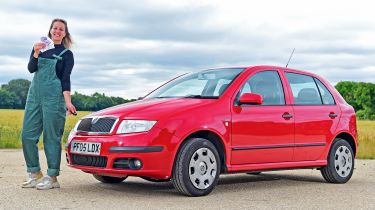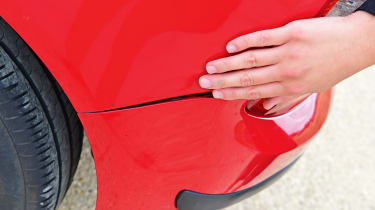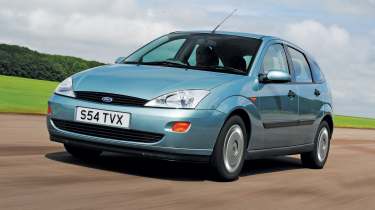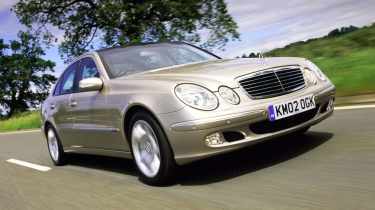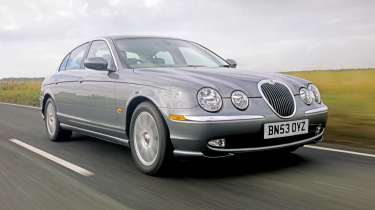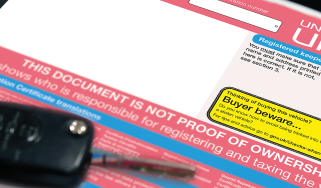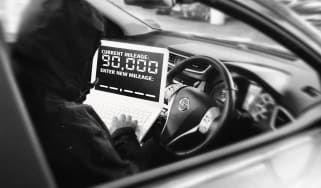Bangernomics: how to buy a banger and run it for peanuts
Buying and running a car for peanuts might seem like a gamble, but it’s achievable if you follow a few simple steps
A car is by far one of the most expensive purchases that most of us will make within our lifetimes. Whether you’re buying a brand-new or used car, you’ll be faced with prices sitting firmly in the four, five or even six-figure brackets. However, there is an alternative option for those who really want to save the most pennies: buy a much older car and spend as little as possible while eking as many miles out of it as realistically possible. This is the art of bangernomics.
So-called ‘bangers’ are cars that have been largely shunned by other buyers. They may be considered unreliable, in need of maintenance, scruffy-looking or simply unfashionable. But if you buy carefully, you’ll be able to own and drive one of these for less than it would cost for a few months’ finance payments on a brand-new car.
There are potential pitfalls to driving a banger, though, and you will need to do plenty of research to make sure the car will not become a money pit.
What should I look for in a bangernomics car?
If you’re thinking of buying a banger, the condition of the car is paramount. While scuffs and dents will all make the car usefully cheaper by providing points to haggle over, mechanical maladies and rust can be expensive to repair. Although if you’re prepared to do a little DIY or can find a more cost-effective way of getting a car fettled, then it could still make sense.
But you will need to choose carefully. Some old cars can literally be ‘written off’ when they need to be taxed. From March 2001 all cars were rated according to their CO2 emissions, and from March 2006 the most polluting cars were hit with a higher rate. Most of those cars are firmly in banger territory now, yet they could cost a fortune in road tax every year.
It means a car such as a Vauxhall Vectra V6 can cost over £600 per year to tax, which may well be more than the car itself is worth, so double check the tax cost of any potential purchase.
A replacement windscreen is another common item which could potentially write off your car. Minor chips can be repaired, but a crack is bad news. On some cars, a new screen could cost four figures if your insurance doesn’t cover you.
If your new banger has a short MoT, use our free MoT Checker tool to see what the car has previously failed on and any advisories picked up during the last test. If there’s no evidence of them being fixed since, it’s entirely possible that they’ll develop into a failure before the next test. Bear that in mind before budgeting your buy.
But don’t dismiss a car because of comparatively minor faults. If you have lived with your car for a while, seen its service history and know it is a good example, it might be worth investing some money in repairs or servicing even if the cost exceeds the official ‘book value’ of the car. A set of tyres and a bit of welding might get you another year of motoring.
Part of the beauty of a banger is that you don’t necessarily have to fix it. If your car needs an expensive repair, you can simply throw it away and start again. Given that the average price paid for a scrap car is around the £150 mark, you might have little to lose.
Which bangernomics car should you buy?
We’ve browsed through the classifieds to find some great cars that can be picked up for significantly less cash than when they were new. Of course, these are just some of the potential bargains to be found out there but, generally speaking, a mid to late-noughties car will strike a decent blend of technology, reliability and affordability.
You can always use our Find a Car service to track down the very latest bargains, too.
Ford Focus Mk1
- Cost then: £14,000
- Cost now: £1,500
If you’re worried about potentially big bills from a noughties premium model, then hunt around for a more mainstream machine.
Look carefully and you can pick up a low-mileage, pampered Ford Focus Mk1 with around 50,000 miles on the clock for £1,500 to £2,000. It hails from a time when Ford layered love and attention on making its cars drive well, with the hatchback getting cutting-edge control blade rear suspension, and deft steering. The Focus’ age is a double-edged sword: it hails from a time when cars were much simpler, and servicing should be cheap, but look out for rust.
Mercedes E-Class W211
- Cost then: around £30,000
- Cost now: £5,000
The thought of spending £5,000 on a one-owner 2008 Mercedes E-Class 220 CDI Avantgarde saloon with fewer than 40,000 miles on the clock and a full service history will make a lot of sense to those who want a bit of luxury with their budget-friendly motoring.
Browsing the classifieds recently, we found just such an E-Class. It was hardly a hero-spec Merc, but it looked in mint condition, and it should remain a pretty solid car for years to come, needing only routine maintenance, and being affordable to fill up.
Jaguar S-Type
- Cost then: around £29,000
- Cost now: £4,200
If you’d like something a bit swanky from the noughties but don’t fancy the E-Class, the Jaguar S-Type is another luxurious machine that’s eligible for bangernomics.
We found a beautiful three-owner 2005 Jaguar S-Type Sport in metallic grey with a 2.7-litre diesel V6 engine, 48,000 miles on the clock, and a full service history for just under £4,200.
The traditionally styled Jag looks like a car that will shrug off the next 50,000 miles, and take you anywhere in style.
Simple checks to make before you buy a banger
Do your homework
Read buying guides and owners’ forums to learn about common problems, how to spot them and how much they’ll cost to fix.
Condition is key
It’s easy to plump for a newer car over an older one, but often an older, cared-for, high-miler could be the better ownership proposition.
Vehicle history check
Ensure the car isn’t stolen, written off or subject to outstanding finance.
MoT history check
Use our free MoT history checker to verify mileages and see previous advisories that you may end up paying to fix.
Check the service history
Evidence of fresh cambelts, oil changes and general service items will help you tell a good car from a money pit.
Don’t fear cosmetic damage
No one wants beaten-up bodywork, but at these prices, dents and scratches play second fiddle to mechanical integrity.
What’s it like to buy, own and run a banger?
When nurse Olivia Maran came back from a year travelling and working in Australia, she needed a reliable car to get her to work and back while covering night shifts.
“I was also trying to get the deposit for a flat and buy all the other things to set up home in the UK. So money was a bit tight and I needed a car that was cheap to buy, run and insure.”
With a budget of just £750, she asked a relative to help her find the perfect car, and he spotted a couple of likely candidates in the local auction. The first, a Peugeot 107, went above the budget during bidding, but they put a winning bid of £575 on a bright red 2005 Skoda Fabia 1.2 Ambiente with 78,000 miles on the clock. Including the auction fees, the total cost was £613.
Olivia said: “My uncle listed what was good about the car, including a long MoT and a pretty decent service history. There were a few scuffs and scrapes, which apparently puts the traders off because fixing them will eat into their profit. They didn’t bother me at all – the car is parked on the street or in the hospital car park, so I think of it as ‘pre-dented’. I was really pleased. It’s a much more solid car than the Peugeot I had also looked at.”
The Fabia, which was Auto Express’s Car of the Year in 2000, was £400 cheaper than a Volkswagen Polo of a similar age, mileage and condition. “I just don’t get it,” said Olivia. “Why would you pay that much more for a car that has the same engine and other bits?”
She’s reserved the rest of her budget for repairs, but to her surprise, the Skoda hasn’t needed any. “I had expected something to need fixing, but it drove perfectly. I treated it to a service and the garage said it was a good car.”
Looking through the receipts that came with the Skoda, it seemed that the previous owner had recently forked out some money on tyres and suspension parts and this might have been their incentive to sell. “I’m not a psychologist, but I can imagine someone getting a few chunky bills and thinking they want to cut their losses,” says Olivia. “But in reality, they had just spent the money making my car all good for me before throwing it all away when they traded the car in!”
She had intended the Skoda to be a stopgap until she could afford something better, but the Fabia has been so reliable that she can’t see any reason to sell it. “The last two MoTs have had no advisories. It’s really good on petrol, too, and I don’t just do local journeys.
I have family scattered around all over the place, so it spends a decent amount of time on the motorway.
“Sure, the air-con is a bit weak in the warmer weather, and it would be nice to have a DAB radio, but I don’t think it’s worth spending thousands more every year just to get gadgets like that.”
Olivia says most of the technology she needs can be found on her iPhone, and she’s fitted a Bluetooth kit so she can make calls and stream music. It cost less than £50 and uses a vacant FM frequency on the radio.
“I love my little Fabia and it has cost me about the same as two or three months’ finance payments on a brand-new car – yet I’ve owned it for more than 18 months now,” she told us. “If the engine blew up tomorrow, I could probably get £150 from the scrap man and still think I’d done really well. I really hope she doesn’t break, though, because I’ve become quite attached to her. If she does, I’ll probably just buy another cheap Fabia.”
Did you know you can buy a used car with Auto Express? Choose from tens of thousands of cars with trusted dealers around the UK. Click here to buy used with Auto Express now...
Find a car with the experts

